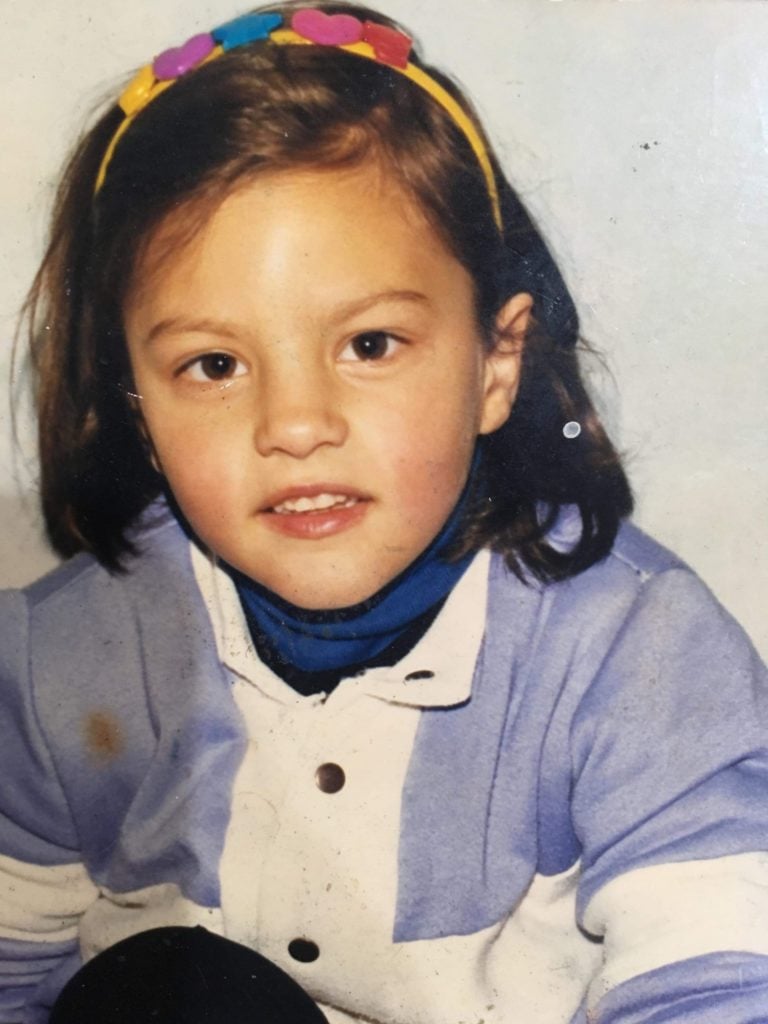“I will never forget the shock and horror I felt as I realised that the rest of my classmates did not speak Greek.”
Those are the words 40-year-old Greek-Australian Elena C used to describe her first day at school 35 years ago.
Born and raised in regional South Australia by Greek parents who migrated Down Under in the early 1950’s seeking a better future for themselves and their family, Elena and her brother were brought up in a traditional Greek home, surrounded by other Greek migrant families in the Riverland.
Originally from a little village in the Peloponnese, Elena’s parents spoke no word of English, and the family only spoke Greek at home.
Elena’s mother was a stay-at-home mum while her dad worked in factories and farms with other Greek migrants.
“I will never forget my first day at school.
“I was a little nervous and a little excited to be starting reception feeling like a real grown up,” she says.
But the young girl’s excitement didn’t last long.
“As soon as mum and I walked into the classroom and the teacher came up to us to introduce herself and welcome me into her class, I realised that she was speaking a different language, and to make matters worse so did everyone else in the room,” says Elena whose first reaction was to drop her little lunch bag on the floor and run away.
“I think my mother knew what was coming and I remember her squeezing my hand firmly into hers signalling we were there to stay.”
Despite her initial shock, Elena says that she ended up settling into school pretty quickly and considers herself lucky as her young Australian teacher felt for the young girl and did everything in her power to make her feel welcome, including giving Elena’s mother English lessons in private after school each day.
Nafsika Kiriakakis, another first generation Greek Australian shares a similar experience.
“After my father’s passing, we went to Greece for about a year and my mother who didn’t know a lot of English back then, used to speak to me in Greek, as did all my relatives there, so that’s all I knew as my first language,” she said.
“When we came back to Australia, I realised that others spoke a different language to the one I spoke but luckily, I went to a multicultural school and felt accepted almost straight away.”

Greek Australian Cleopatra Litsas shares a completely different experience claiming that a feather duster was her main motivation behind learning how to read and write in English.
She says she started Kindergarten not knowing a word of English, but her teacher, Miss Wong, a migrant herself, was not as welcoming.
“I remember she would ask me to do something, but because I couldn’t understand what she was asking of me, she would then make me put my hand out and hit me with the feather duster, as a form of punishment. The worst part was that she was perfectly aware of the fact I didn’t speak any English,” recalls Cleopatra who was at the time too scared to tell her mother what was going on at school, in case she got into more trouble for being naughty.
“It was then that I decided that if I wanted to avoid being treated that way, I needed to learn English quickly,” adds Cleopatra.
In actuality, back in the 1950’s, 1960’s and 1970’s, many classroom teachers had little or no experience in teaching English as an additional language to migrants and it would probably have been a daunting task for both students and teachers to communicate effectively, nevertheless many Greek Australians wish that they had at least encountered a teacher who was willing to help them settle in and slowly develop strategies and ideas to assist them in mainstream classroom settings.
“The majority of those teachers made us migrant children feel like second-class citizens which certainly affected our school years, our confidence and our learning,” explains Yiannis, a businessman who attended school in regional New South Wales in the 1950’s.
Dimitra Andritsakis, who started her school years at Moreland Primary school in SA, and is now a teacher herself, says she considers herself lucky that with the help of her mother and some children’s picture books, she managed to pick up the English language pretty quickly and even helped her mother learn.
“In a way, my mum and I learnt from one another and that was a nice bond we shared.”
READ MORE: Community languages multicultural grants Stream Two now open
The arrival in a school of students from a language background other than English should be the start of a positive and rewarding time for teachers and for other students.
“Sharing in developing a student’s confidence and ability to communicate in English makes teaching a uniquely satisfying experience and as educators that’s what we need to always keep in mind.
“At least through our experiences, we know not to repeat the same mistakes,” concludes Ms. Andritsakis.









